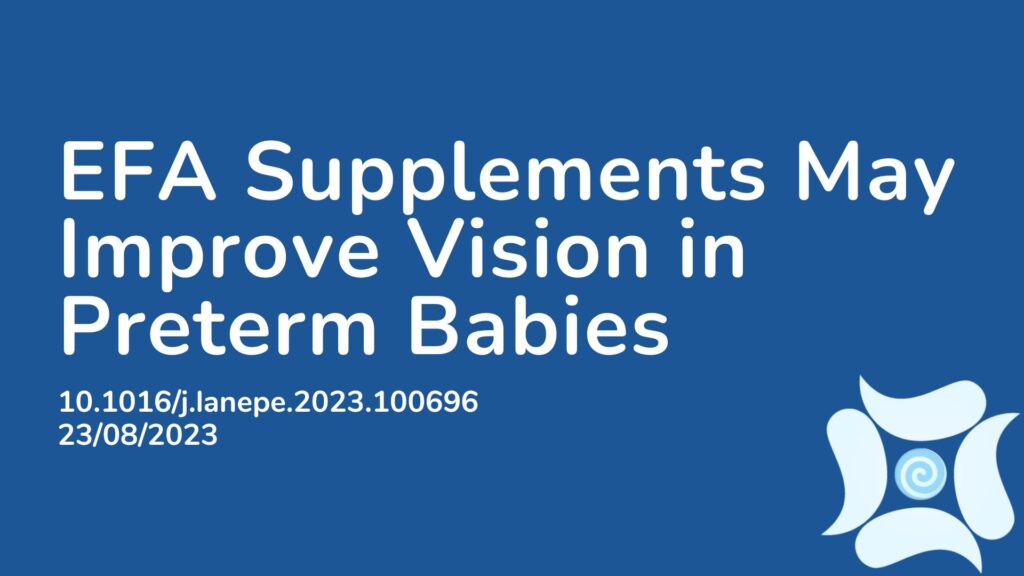Summary:
A study at the University of Gothenburg in Sweden has shown that preterm babies, defined as babies who are born before 28 weeks of pregnancy, may have better vision at the age of 2.5 when given an omega-3 and omega-6 supplement. 115 babies were included in the study, half of which were randomised to a control group that did not receive the supplementation. The babies that were given a supplement were administered docosahexaenoic acid (DHA) and arachidonic acid (AA) from birth to 40 weeks postpartum. The results showed that whilst visual acuity was improved in the supplement group at 2.5 years of age, the authors were unable to conclude that omega supplementation helped support vision as there were too many limitations and a high-drop out rate with the study. The authors have urged further studies on this topic as the results may be promising for better designed, larger studies.
Abstract:
Background: We investigated ophthalmological outcomes at 2.5 years of corrected age in children born extremely preterm (EPT) to evaluate the effects of postnatal enteral supplementation with ω-3 and ω-6 long-chain polyunsaturated fatty acids. Methods: In the Mega Donna Mega clinical trial, EPT infants born at less than 28 weeks of gestation were randomized to receive an enteral supplementation of docosahexaenoic acid (DHA) and arachidonic acid (AA) from birth to 40 weeks postmenstrual age. In this exploratory follow-up at 2.5 years of corrected age, we assessed visual acuity (VA), refraction, manifest strabismus, and nystagmus. Satisfactory VA was defined as ≥20/63. Multiple imputation (MI) was used to address the issue of missing data. Findings: Of 178 children in the trial, 115 (with median gestational age (GA) of 25 + 4/7 weeks and median birth weights of 790 g) were ophthalmologically assessed at a median corrected age of 2.7 years (range 2.0–3.9 years). VA assessment was missing in 42.1% (75/178), in 41.7% (35/84) of the AA/DHA supplemented infants, and in 42.6% (40/94) of the control infants. After MI and adjustments for GA, study center, plurality, and corrected age at VA exam, no significant effect of AA/DHA supplementation was detected in VA outcome (≥20/63) (odds ratio 2.16, confidence interval 95% 0.99–4.69, p = 0.053). Interpretation: In this randomized controlled trial follow-up, postnatal supplementation with enteral AA/DHA to EPT children did not significantly alter VA at 2.5 years of corrected age. Due to the high loss to follow-up rate and the limited statistical power, additional studies are needed.
Article Publication Date: 23/08/2023
DOI: 10.1016/j.lanepe.2023.100696




